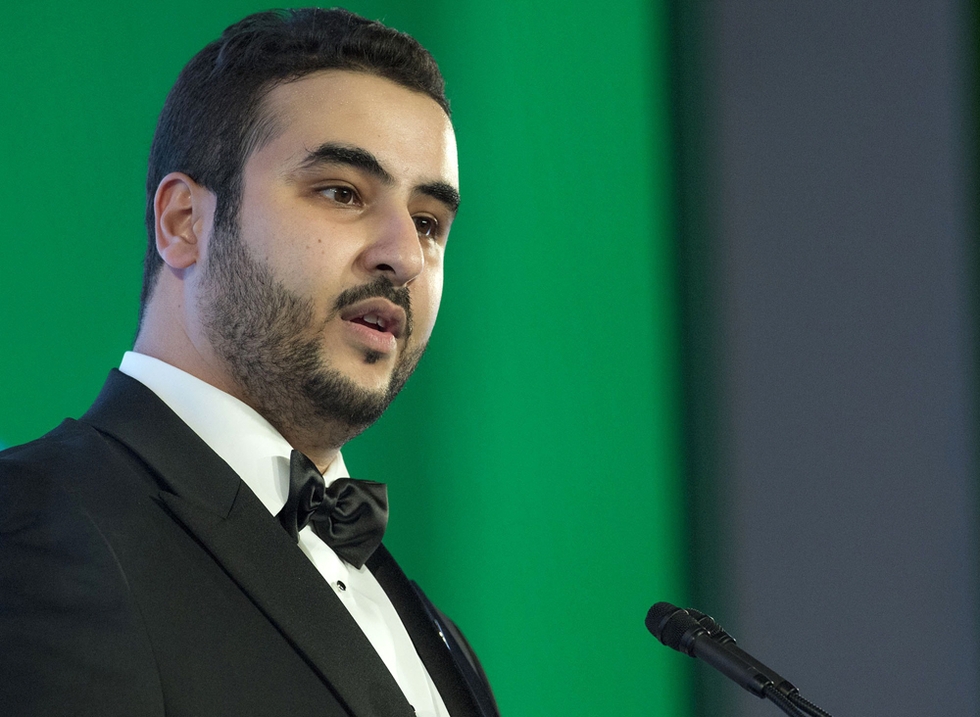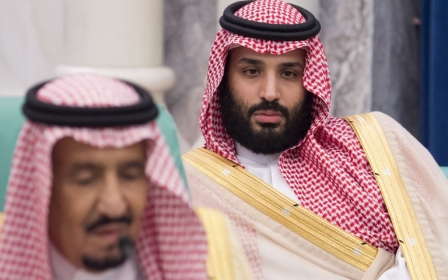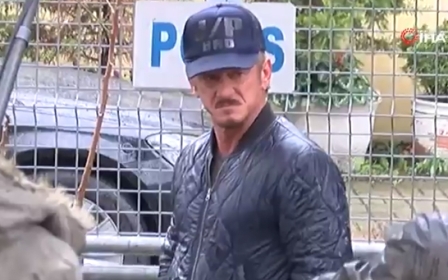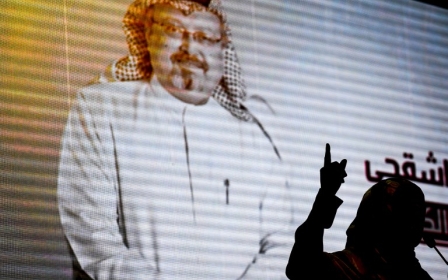Amid Khashoggi furore, Saudi ambassador Khalid bin Salman returns to US

Khalid bin Salman, the younger brother of Saudi Arabia's crown prince, has returned to the United States, where he intends to continue in his role as the Gulf kingdom's ambassador in Washington, NBC News reported on Wednesday.
Khalid flew back to Saudi Arabia shortly after the murder of journalist Jamal Khashoggi in early October.
Saudi Arabia has faced heightened international pressure as a result of the murder of Khashoggi, a Saudi government critic and Washington Post columnist who was killed in the country's Istanbul consulate on 2 October.
Citing unidentified sources familiar with the matter, NBC said Khalid arrived at Dulles International Airport in Washington, DC, on Wednesday morning, just hours before the funeral of former US President George HW Bush.
Khalid did not attend the funeral, despite earlier saying he intended to go, NBC reported. A Saudi official said he was unable to attend the funeral because of a plane delay.
The Saudi embassy in Washington confirmed that Khalid had returned to the US, AFP news agency reported later, citing the embassy's spokeswoman, Fatimah Baeshen.
A US official told NBC that Khalid is not expected to be expelled from the country and would continue as ambassador. "His status as such remains unchanged," the official said.
Amid mounting criticism against him and his older brother, Saudi Crown Prince Mohammed bin Salman, Khalid has slowly crept back into the spotlight, most recently meeting with US Secretary of State Mike Pompeo at the G20 summit in Argentina last week.
Still, his return to the US sparked strong criticism on Wednesday.
Khashoggi's Washington Post editor, Karen Attiah, said that he should be expelled from the US outright.
Accused of involvement in Khashoggi killing
Khalid has also been accused of playing a role in the murder of Khashoggi.
A 15-man Saudi team was sent to Turkey to kill the Washington Post columnist, Middle East Eye previously reported. His murder took seven minutes.
The Post reported on 16 November that the CIA’s conclusion that the crown prince, known as MBS, ordered Khashoggi’s murder came after it examined several pieces of intelligence, including an intercepted phone call between Khalid and the journalist.
Citing people familiar with the matter, the Post reported that Khalid told Khashoggi that he should "go to the Saudi Consulate in Istanbul to retrieve the documents and gave him assurances that it would be safe to do so”.
It was unclear whether Khalid knew that Khashoggi would be killed, the US newspaper said, but he made the call at the discretion of his brother, MBS.
A spokeswoman for the Saudi embassy in Washington told the Post at the time that Khalid and Khashoggi never discussed “anything related to going to Turkey” and called the CIA’s claims false.
After the story broke, Khalid also denied the accusations, saying on Twitter that he last had contact with Khashoggi via text on 26 October 2017.
“I never talked to him by phone and certainly never suggested he go to Turkey for any reason,” Khalid tweeted on 16 November. “I ask the US government to release any information regarding this claim.”
US senators speak out
Khalid's return to the US comes just one day after a closed US Senate briefing by CIA chief Gina Haspel. Following the briefing, a handful of senators said they believe that MBS ordered the hit on Khashoggi.
Haspel delivered a closed-door briefing on the Khashoggi murder to Republican and Democratic leaders of the Senate Foreign Relations, Armed Services and Appropriations committees on Tuesday morning.
After the meeting, Republican Senator Lindsey Graham told reporters that MBS is "complicit" in the murder. "MBS, the crown prince, is a wrecking ball. I think he’s complicit in the murder of Mr Khashoggi to the highest level possible," he said.
US Senator Bob Corker, the current head of the Senate Committee on Foreign Relations, also said he is certain that MBS ordered Khashoggi's murder.
"I have zero question in my mind that the crown prince directed the murder and was kept appraised of the situation all the way through it," Corker said.
Middle East Eye propose une couverture et une analyse indépendantes et incomparables du Moyen-Orient, de l’Afrique du Nord et d’autres régions du monde. Pour en savoir plus sur la reprise de ce contenu et les frais qui s’appliquent, veuillez remplir ce formulaire [en anglais]. Pour en savoir plus sur MEE, cliquez ici [en anglais].




